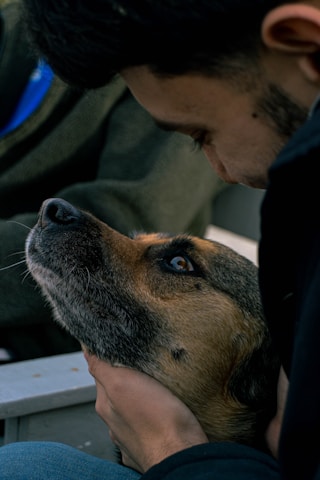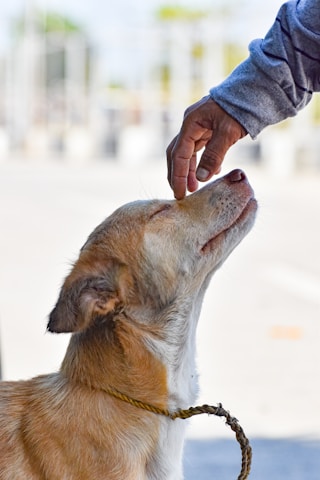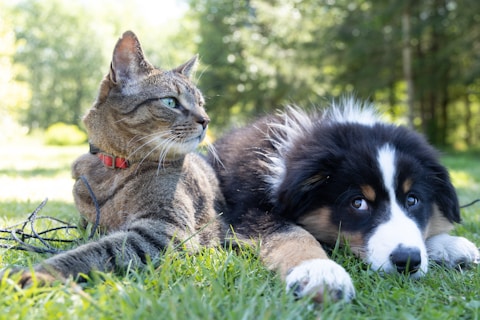Vaccination Schedule for Dogs and Cats

Vaccinations are one of the most important steps you can take to protect your pets from dangerous and sometimes fatal diseases. Whether you’ve just adopted a puppy, kitten, or adult pet, following a proper vaccination schedule helps ensure they stay healthy and live a long, happy life.
In this post, we break down everything you need to know about vaccines, how they work, and when to get them for dogs and cats — based on their age and lifestyle.
🧬 Why Are Vaccines Important for Pets?
Vaccines stimulate your pet’s immune system to create antibodies that fight off specific diseases. Some diseases are common and highly contagious, while others can be fatal if not prevented.
Vaccination also:
- Helps prevent disease outbreaks in communities
- Protects other pets and humans (especially from rabies)
- Reduces long-term healthcare costs
- Extends your pet’s life
🐶 Vaccination Schedule for Dogs
✅ Core Vaccines for Dogs:
These are recommended for all dogs, regardless of age, breed, or lifestyle:
- Rabies – Required by law in most places; fatal and transmissible to humans
- DHPP – A combination vaccine that protects against:
- Distemper
- Hepatitis (Adenovirus)
- Parvovirus
- Parainfluenza
🐾 Optional/Non-Core Vaccines:
Recommended based on your dog’s environment, travel, or exposure:
- Bordetella – Prevents kennel cough (needed for boarding or daycare)
- Leptospirosis – Protects against a bacterial infection spread through water or urine
- Lyme Disease – For dogs in areas with high tick exposure
- Canine Influenza – For dogs in group settings or urban areas
📅 Puppy Vaccination Schedule (6–16 weeks):
| Age | Vaccine |
|---|---|
| 6–8 weeks | DHPP (1st dose) |
| 10–12 weeks | DHPP (2nd dose), Bordetella (opt) |
| 14–16 weeks | DHPP (3rd dose), Rabies (1st dose) |
| 12–16 weeks+ | Leptospirosis, Lyme, Influenza (optional) |
🐕 Adult Dog Booster Schedule:
- DHPP – Every 1 to 3 years
- Rabies – Every 1 or 3 years (depending on local laws and vaccine type)
- Other non-core vaccines – Yearly, based on lifestyle
✅ Pro Tip: Always consult your vet for a tailored vaccine plan, especially if your dog travels or interacts with many other animals.
🐱 Vaccination Schedule for Cats
✅ Core Vaccines for Cats:
Recommended for all cats, including indoor cats:
- Rabies – Fatal and legally required in many areas
- FVRCP – A 3-in-1 vaccine protecting against:
- Feline Viral Rhinotracheitis (herpesvirus)
- Calicivirus
- Panleukopenia (feline distemper)
🐾 Optional/Non-Core Vaccines:
- Feline Leukemia (FeLV) – For kittens and outdoor cats
- Chlamydia – For cats with respiratory infections or in multi-cat households
- Bordetella – For shelter or boarding environments
📅 Kitten Vaccination Schedule (6–16 weeks):
| Age | Vaccine |
|---|---|
| 6–8 weeks | FVRCP (1st dose) |
| 10–12 weeks | FVRCP (2nd dose), FeLV (optional) |
| 14–16 weeks | FVRCP (3rd dose), Rabies (1st dose) |
| 12–16 weeks+ | FeLV (2nd dose, if given) |
🐈 Adult Cat Booster Schedule:
- FVRCP – Every 1 to 3 years
- Rabies – Every 1 or 3 years
- FeLV – Annually if at risk (e.g., outdoor cats)
✅ Note: Indoor cats still need core vaccines. Viruses can enter through open windows, other pets, or even your clothing.
🧾 Tips to Stay on Track with Vaccines
- 📅 Use a vaccine record or ask your vet for a health booklet
- 📲 Set reminders for booster shots
- 🏥 Don’t delay appointments — late vaccinations reduce effectiveness
- 🐕🦺 Ask about combination vaccines to reduce injection stress
❤️ Final Thoughts
Vaccines are one of the easiest, most affordable ways to protect your dog or cat from painful, deadly diseases. Following the correct schedule from puppy or kitten stage into adulthood helps build long-term immunity and gives your pet a better quality of life.
Your pet trusts you with their life. Make sure you’re giving them the safest one possible.



